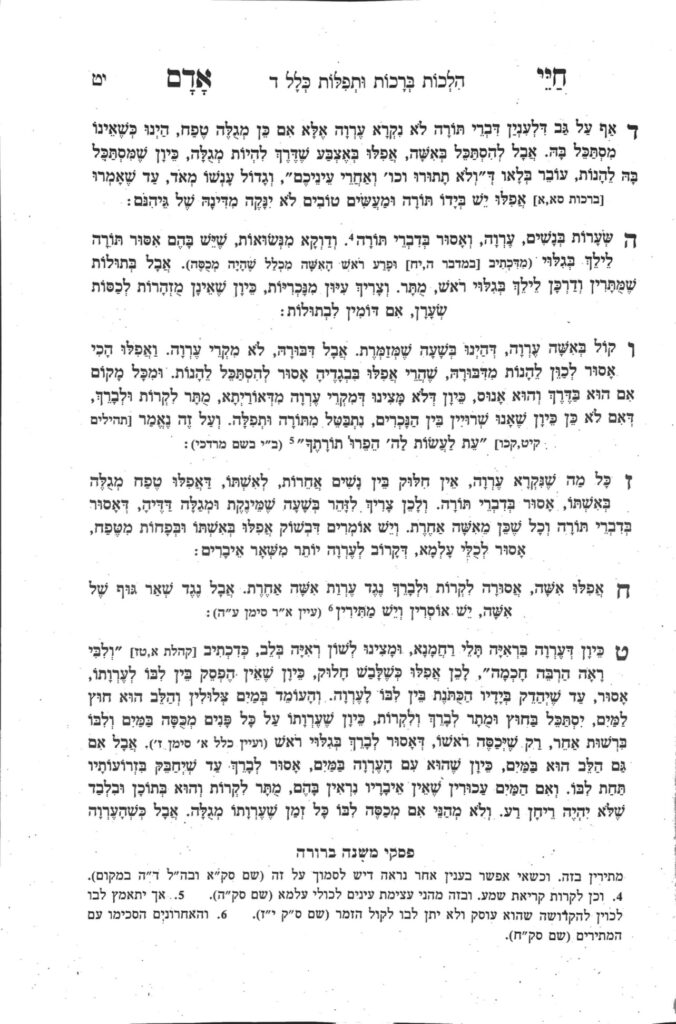We are beginning siman 6, which discusses the issue of kol, voice.
The Chayei Adam writes that kol b’isha ervah, a woman’s voice is considered ervah. This psak is based on a Gemara in Brachos 24b, which says kol b’isha ervah, and supports it from the pasuk in Shir Hashirim ki koleich areiv, that [a woman’s] voice is pleasant. Rashi points out that the pasuk is describing different elements of a man seeing the beauty of a woman, as a metaphor for the relationship between Klal Yisroel and Hashem. Klal Yisroel is the woman in the metaphor, and Hashem is listing different physical praises as metaphors for Klal Yisroel. One of the praises is that a woman’s voice is pleasant, and so the Gemara in Brachos concludes that a woman’s voice is ervah. This Gemara is also the source that a tefach, hair and shok are an ervah, as we have learned previously.
The Chayei Adam immediately qualifies the Gemara as referring to singing. Speech is not considered ervah
We need to qualify a few points. Why does the Chayei Adam feel the need to qualify the halacha? It would be quite limiting if it were to be assur to hear a woman speak, and hard to understand it as a possibility. There are plenty of Gemaras in which women speak. Additionally, if a woman were to go to a din torah, based on this thought process she would not be allowed to speak her side, which is certainly not true.
Another question we need to understand is whether this is a general issur, or if it is only limited to kriyas shema.
A third point is that Rashi points out on the Gemara in Brachos that from the fact the Gemara says a woman’s voice is pleasant, we can conclude that there is an element of taivah, attraction and desire, to her voice. If so, we have to understand the concern of Chazal. Is the concern for hirhurim, improper thoughts from the man, which we have learned comes from venishmarta mikol davar ra (shiur 1541)? Is it part of the issur of lo sikrevu, distancing oneself from arayos (see hsiur 1539, 1541)? The difference between the two possibilities is a woman who is not an ervah. Lo sikrevu only applies to a woman who is assur to this specific man (e.g., married, niddah, close relative, etc.). If the issue is hirhur, it would apply to all women.
Be’ezras Hashem, we will clarify these and many other points in the upcoming shiurim.
Summary
Kol b’isha ervah, a woman’s voice is considered ervah. We will discuss these halachos going further, be’ezras Hashem.



